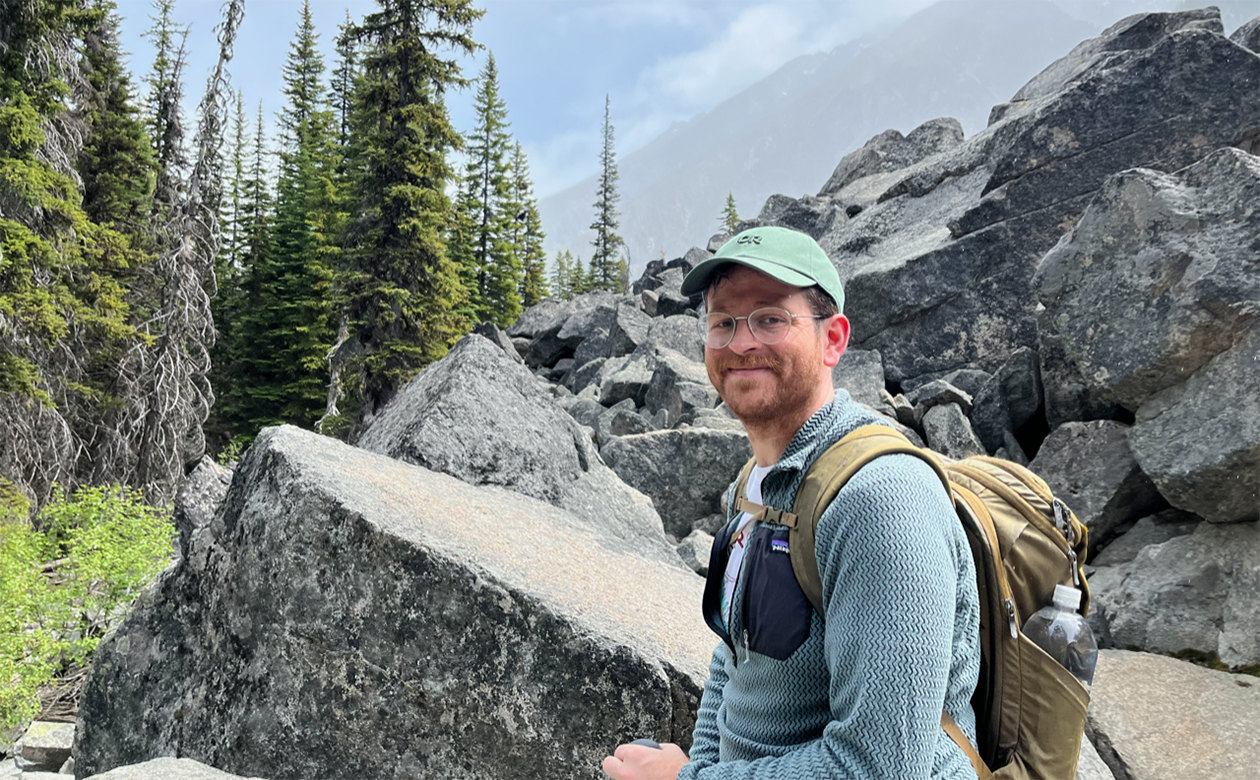Using a computer is complicated. Scientific Computing and Imaging (SCI) Institute faculty member Andrew McNutt wants to fix that. In one of his potentially most impactful projects, the assistant professor of computer science aims to automate visualization design decisions to help all kinds of analysts—from doctors to engineers—“quickly navigate millions of data-driven decisions in their daily work.”
As McNutt rounds out his first year at the University of Utah, read about his research, why it matters, what brought him to SCI, and more.
Why did you become a professor and a researcher?
There’s a saying that your biggest life decisions are made in an instant. I kind of ended up here because decisions were made subconsciously. I did my undergrad in physics, and I liked physics a lot, but the part that I found myself drawn to was visual explanations. I liked doing that, and physics has lots of good data for that, but I wanted to learn better tools so I could then make better tools. And so that led me into industry. I did that for a while, and then decided I wanted to learn in a more structured way. So that led me to grad school for computer science with a visualization focus.
What’s your primary research area?
Doing things with computers is too complicated. It requires too much domain expertise. It forces all this unnecessary complexity into a bunch of ordinary tasks. And so my work is trying to undo that complexity and reduce the necessity of that domain expertise.
I take a few different approaches. One of them is having your computer give you assistance—e.g., telling you that you've done something wrong—like Clippy, but not a jerk. Another is changing the way you interact with computers. If we have better programming languages to do things, then that'll change the kinds of things that we're able to do. Lastly, I really like taking critical perspectives on things—so not changing your tools, but changing your mind.
Why is your research important?
Incidental complexity causes billions of dollars of mistakes every year. For instance, the Great Recession was made worse by a series of Excel errors. And the same things happen in visualization, but in smaller, everyday things—sometimes it's miscommunication, or self-deception, or actual deception. And we shouldn't have to deal with this level of complexity. Things are created and we know how to use them. Everyone should be able to use that knowledge. And so my work tries to democratize using that knowledge in a variety of ways.
What else are you working on?
One of the domains of interest for theoretical tool building is color. Building color palettes is really hard, particularly in the context of data color palettes. And so a recent line of work looks at, how do you evaluate and understand the quality of color palettes and provide tools for that? Imagine if an assistant could tell you the color palette you’re building won’t be accessible to people who are colorblind or have low vision. And that exists—we have a paper about it.
What does being a part of SCI mean to you?
It means that I have great fortune. SCI is the best assemblage of visualization researchers in the world. It's another one of these things where I don't know what I've done to deserve it. But I'm really delighted and honored to get to be part of the wonderful tradition that is here—to do great work on visualization. There are so many great things that SCI and its members have done, and I'm looking forward to continuing that.
Who or what inspires you in your work?
A lot of things, a lot of people. But it's important to have heroes. And so the heroes I point to in my own field are Michael Correll and Jeffrey Heer. And I'm very lucky to have gotten to work with both of them at different times. Michael does visionary work on theory and is a radical critical thinker who manages to do great computer science work under that framing. And everyone else in visualization just lives under Jeff's auspices. But beyond that, part of what inspires me to do the work is just the work—being constantly mad that computers aren't better. It's hard being a person on the Internet just trying to do stuff, and why is it so hard?
What do you like to do in your free time?
Like every single person in Salt Lake, I like to hike. I like to bike. I like to read. I recently finished House of Leaves. It's in the family of ergodic literature, where the physical form of the book is important. This one, you have to turn it upside down a bunch to be able to read it. It's real pretentious, but a real delight.
New Faculty Member Andrew McNutt Harnesses Vis Expertise to Make Computers Easier to Use

